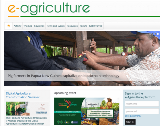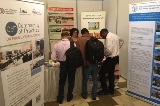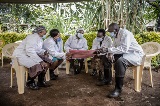Champion > Partnerships
At the core of FAO's strategy for developing thriving, sustainable, and inclusive agrifood systems are partnerships. Explore these various partnerships, to understand how FAO is working with stakeholders to champion SDG action on the ground.

FAO and UN System Partnerships
12/03/2024
FAO is at the heart of the UN development system (UNDS), leading efforts to tackle the world's most pressing challenges related to food and agriculture. To achieve its mandate of ending hunger, FAO collaborates closely with other UN agencies, funds and programmes, leveraging their respective strengths and comparative advantages.
300ad821-e578-4d3e-a76d-49f836e245ea.tmb-th600x450.png?Culture=en&sfvrsn=6396fc41_1)
FAO-UNIDO Agrifood Systems Transformation Accelerator
06/03/2023
The FAO and UNIDO Agrifood Systems Transformation Accelerator (ASTA) is a global programme designed to help Least Developed Countries make their agrifood systems more efficient, inclusive, resilient and sustainable by fostering partnerships and generating public-private investments.
ea9dd676-3e39-49cd-bfdd-899cdc4a01c0.tmb-th600x450.png?Culture=en&sfvrsn=9e25a784_7)
International Food Safety Authorities Network (INFOSAN)
01/01/2023
The International Food Safety Authorities Network (INFOSAN) is a global voluntary network of national authorities with a role in food safety, coordinated by a joint FAO/WHO Secretariat. National authorities of almost all of FAO and WHO Member States are part of the network. FAO and WHO have complementary roles in the management of INFOSAN.
.tmb-th600x450.png?Culture=en&sfvrsn=5cd1527d_12)
FAO South-South Cooperation
01/01/2023
As a facilitator of South-South Cooperation (SSC), FAO brings together countries that have development solutions with countries that are also interested in applying them.Both South-South (SSC) and Triangular Cooperation (TrC) have proven effective in creating jobs, building infrastructure and promoting trade in countries across the global South.
.tmb-th600x450.jpg?Culture=en&sfvrsn=f2b963e0_1)
Global Forum on Food Security and Nutrition (FSN Forum)
01/01/2023
The FAO Global Forum on Food Security and Nutrition (FSN Forum) is an open, neutral platform for multistakeholder dialogue facilitated by the FAO Agrifood Economics Division (ESA). It engages a wide range of individuals and institutions, fostering awareness, knowledge sharing, debate and mutual learning on a wide range of issues that affect food security and nutrition, and food systems.

e-Agriculture Community of Practice
01/01/2023
e-Agriculture is a global community of practice that facilitates dialogue, information exchange and sharing of ideas related to the use of information and communication technologies (ICTs) for sustainable agriculture and rural development.
.tmb-th600x450.png?Culture=en&sfvrsn=7cbf96d9_4)
Committee on World Food Security
01/01/2023
Using a multi-stakeholder, inclusive approach, CFS develops and endorses policy recommendations and guidance on a wide range of food security and nutrition topics. These are developed starting from scientific and evidence-based reports produced by the High-Level Panel of Experts on Food Security and Nutrition (HLPE) and/or through work supported technically by FAO, IFAD, WFP and ..
3b5e6d3e-7881-45c9-9781-79a458280520.tmb-th600x450.png?Culture=en&sfvrsn=3c7ad554_1)
World Banana Forum
01/01/2023
The World Banana Forum (WBF) connects participants from across the global banana value-chain to achieve best practices for sustainable production and trade.

Food Coalition
01/01/2023
Food Coalition is a multi-stakeholder platform, established to act and accelerate the pace of change towards agrifood systems transformation and to build alliances and collective support for countries most in need and in response to the global priorities of rising food insecurity, intensification of climate shocks, and instability for global food and agriculture.

Farmer Field School Platform
01/01/2023
A Farmer Field School brings together a group of farmers, livestock herders or fisherfolk, to learn on how to shift towards more sustainable production practices, by better understanding complex agro-ecosystems and by enhancing ecosystem services.

INFOODS
01/01/2023
INFOODS is the International Network of Food Data Systems. It was established in 1984. It is a worldwide network of food composition experts aiming to improve the quality, availability, reliability and use of food composition data. INFOODS also stands as a forum through which international harmonization and support for food composition activities can be achieved and advocated.

Codex Alimentarius
01/01/2023
The Codex Alimentarius, or "Food Code" is a collection of standards, guidelines and codes of practice adopted by the Codex Alimentarius Commission. The Commission, also known as CAC, is the central part of the Joint FAO/WHO Food Standards Programme and was established by FAO and WHO to protect consumer health and promote fair practices in food trade.

Community of Practice on Food Loss Reduction
01/01/2023
The CoP provides an online discussion FORUM, resources (online libraries, databases, repositories with relevant materials), and links to partners. It is a dynamic platform that will facilitate information sharing and coordination, and it will be enriched with updated information on a regular basis.
bbf569aa-47a7-4db7-a83b-c3db5395ea95.tmb-th600x450.png?Culture=en&sfvrsn=f0886317_8)
Global Environment Facility
01/01/2023
As a partner agency for the Global Environment Facility (GEF), FAO supports countries worldwide in addressing the complex challenges at the nexus between the environment, agriculture, forestry, marine and freshwater resources. FAO’s global GEF portfolio currently exceeds USD 1 billion, assisting more than 120 countries in projects that advance the Sustainable Development Goals (SDGs)..

Collaborative Partnership on Forests
01/01/2023
The Collaborative Partnership on Forests (CPF) is an informal, voluntary arrangement among 16 international organizations and secretariats with substantial programmes on forests. These agencies share their experiences and build on them to produce new benefits for their respective constituencies.
.tmb-th600x450.png?Culture=en&sfvrsn=7dbd027a_1)
Global Alliance on Climate-Smart Agriculture (GACSA)
01/01/2023
GACSA is an inclusive, voluntary and action-oriented multi-stakeholder platform on Climate-Smart Agriculture (CSA). GACSA works to improve farmers’ agricultural productivity and incomes in a sustainable way; build farmers’ resilience to extreme weather and changing climate; reduce greenhouse gas emissions associated with agriculture, when possible.
eb5b216e-f3a0-4bca-bab3-bb73d12540f7.tmb-th600x450.png?Culture=en&sfvrsn=aae613c1_5)
Livestock Environmental Assessment and Performance Partnership
01/01/2023
The Livestock Environmental Assessment and Performance (LEAP) Partnership is a multi-stakeholder initiative that seeks to improve the environmental sustainability of the livestock sector through harmonized methods, metrics, and data. LEAP leads a coordinated global initiative to accelerate the sustainable development of livestock supply chain and to support coherent climate actions...
.tmb-e-2000-600.tmb-th600x450.jpg?Culture=en&sfvrsn=bb332b23_1)
Inter-Regional Technical Platform on Water Scarcity (iRTP-WS)
01/01/2023
The inter-Regional Technical Platform on Water Scarcity (iRTP-WS) was designed to aggregate and disseminate up to date regional, national, and subnational innovations and best practices between experts, stakeholders and donors on the achievement of the objectives of the water-related targets in the 2030 Agenda.

FAO-IAFN Women’s Accelerator Mentorship Programme for Women-led SMEs in Africa
31/12/2022
FAO and the International Agri-Food Network (IAFN) joined forces to launch a pilot Accelerator Mentorship Programme to support women entrepreneurs in addressing the key challenges and constraints they face in their businesses. The programme supports African women-led Small and medium-sized enterprises (SMEs) in the agrifood system, ....

Antimicrobial Resistance Multi-Stakeholder Partnership Platform
18/11/2022
The AMR Multi-Stakeholder Partnership Platform aims to catalyse a global movement for action against antimicrobial resistance (AMR) by fostering cooperation between a diverse range of stakeholders at all levels. It seeks to ensure a healthier, more sustainable and resilient present and future in which antimicrobials are preserved as critical lifesaving medicines accessible to everyone.
